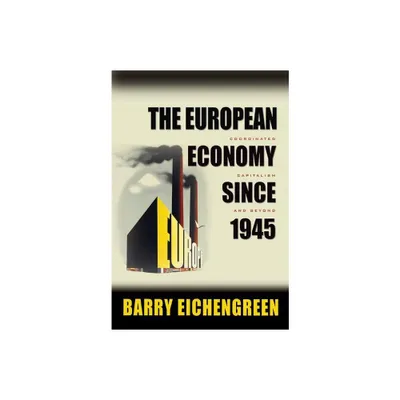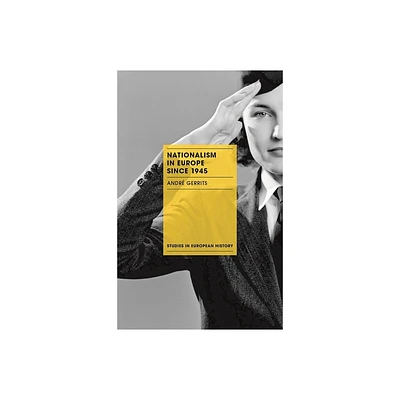Home
The European Economy since 1945: Coordinated Capitalism and Beyond
Loading Inventory...
Barnes and Noble
The European Economy since 1945: Coordinated Capitalism and Beyond
Current price: $42.00


Barnes and Noble
The European Economy since 1945: Coordinated Capitalism and Beyond
Current price: $42.00
Loading Inventory...
Size: OS
*Product Information may vary - to confirm product availability, pricing, and additional information please contact Barnes and Noble
In 1945, many Europeans still heated with coal, cooled their food with ice, and lacked indoor plumbing. Today, things could hardly be more different. Over the second half of the twentieth century, the average European's buying power tripled, while working hours fell by a third.
The European Economy since 1945
is a broad, accessible, forthright account of the extraordinary development of Europe's economy since the end of World War II. Barry Eichengreen argues that the continent's history has been critical to its economic performance, and that it will continue to be so going forward.
Challenging standard views that basic economic forces were behind postwar Europe's success, Eichengreen shows how Western Europe in particular inherited a set of institutions singularly well suited to the economic circumstances that reigned for almost three decades. Economic growth was facilitated by solidarity-centered trade unions, cohesive employers' associations, and growth-minded governmentsall legacies of Europe's earlier history. For example, these institutions worked together to mobilize savings, finance investment, and stabilize wages.
However, this inheritance of economic and social institutions that was the solution until around 1973when Europe had to switch from growth based on brute-force investment and the acquisition of known technologies to growth based on increased efficiency and innovationthen became the problem.
Thus, the key questions for the future are whether Europe and its constituent nations can now adapt their institutions to the needs of a globalized knowledge economy, and whether in doing so, the continent's distinctive history will be an obstacle or an asset.
The European Economy since 1945
is a broad, accessible, forthright account of the extraordinary development of Europe's economy since the end of World War II. Barry Eichengreen argues that the continent's history has been critical to its economic performance, and that it will continue to be so going forward.
Challenging standard views that basic economic forces were behind postwar Europe's success, Eichengreen shows how Western Europe in particular inherited a set of institutions singularly well suited to the economic circumstances that reigned for almost three decades. Economic growth was facilitated by solidarity-centered trade unions, cohesive employers' associations, and growth-minded governmentsall legacies of Europe's earlier history. For example, these institutions worked together to mobilize savings, finance investment, and stabilize wages.
However, this inheritance of economic and social institutions that was the solution until around 1973when Europe had to switch from growth based on brute-force investment and the acquisition of known technologies to growth based on increased efficiency and innovationthen became the problem.
Thus, the key questions for the future are whether Europe and its constituent nations can now adapt their institutions to the needs of a globalized knowledge economy, and whether in doing so, the continent's distinctive history will be an obstacle or an asset.


















